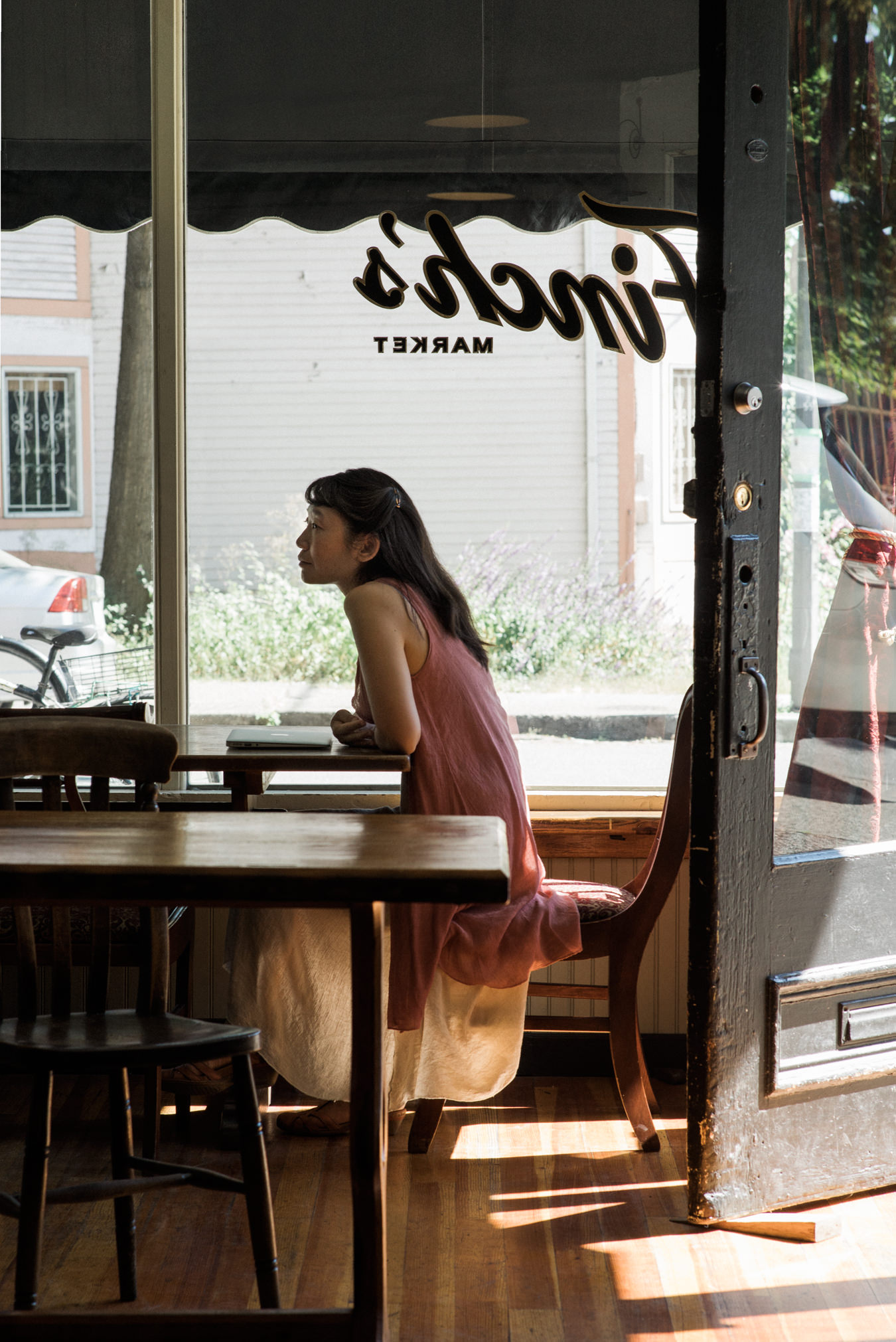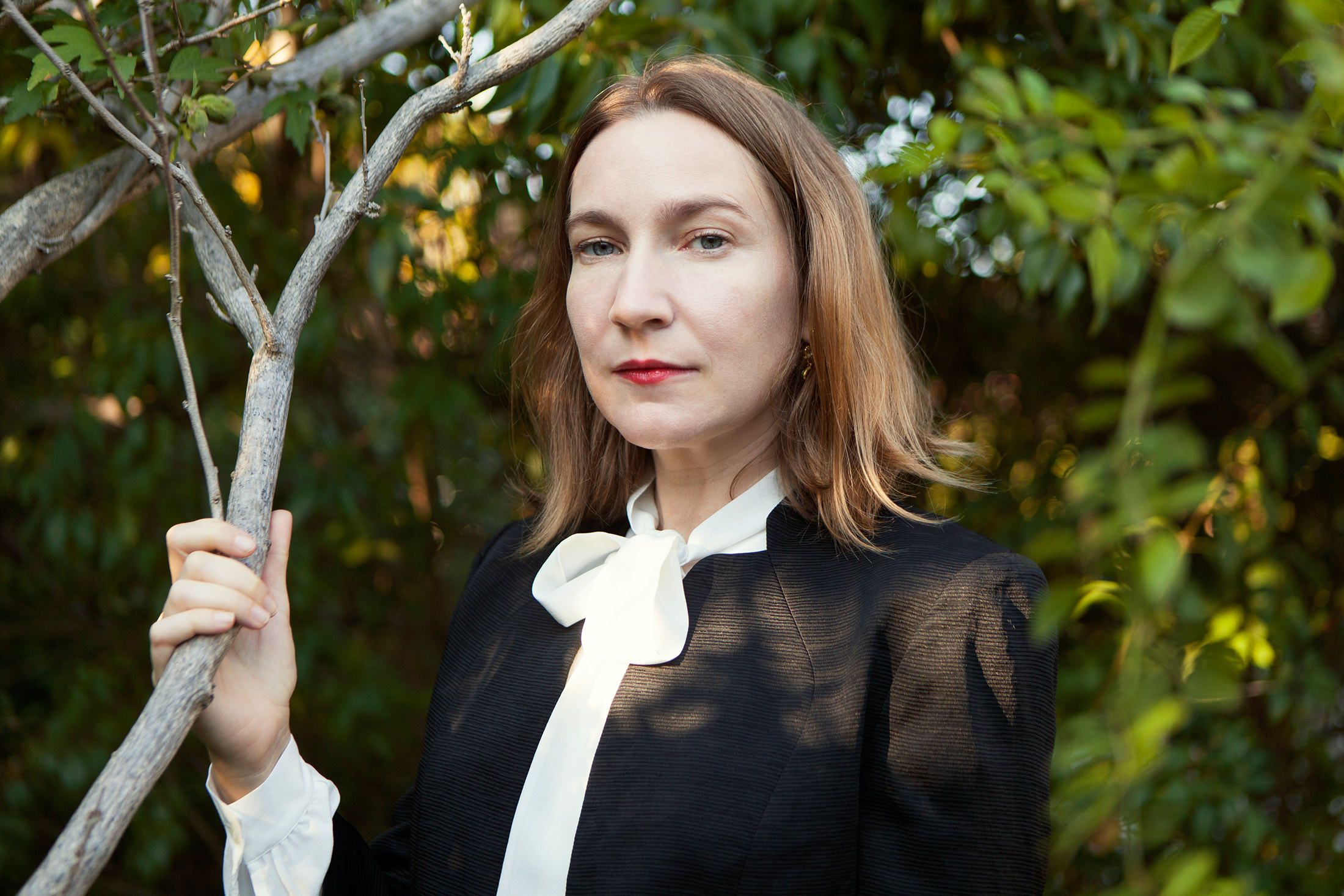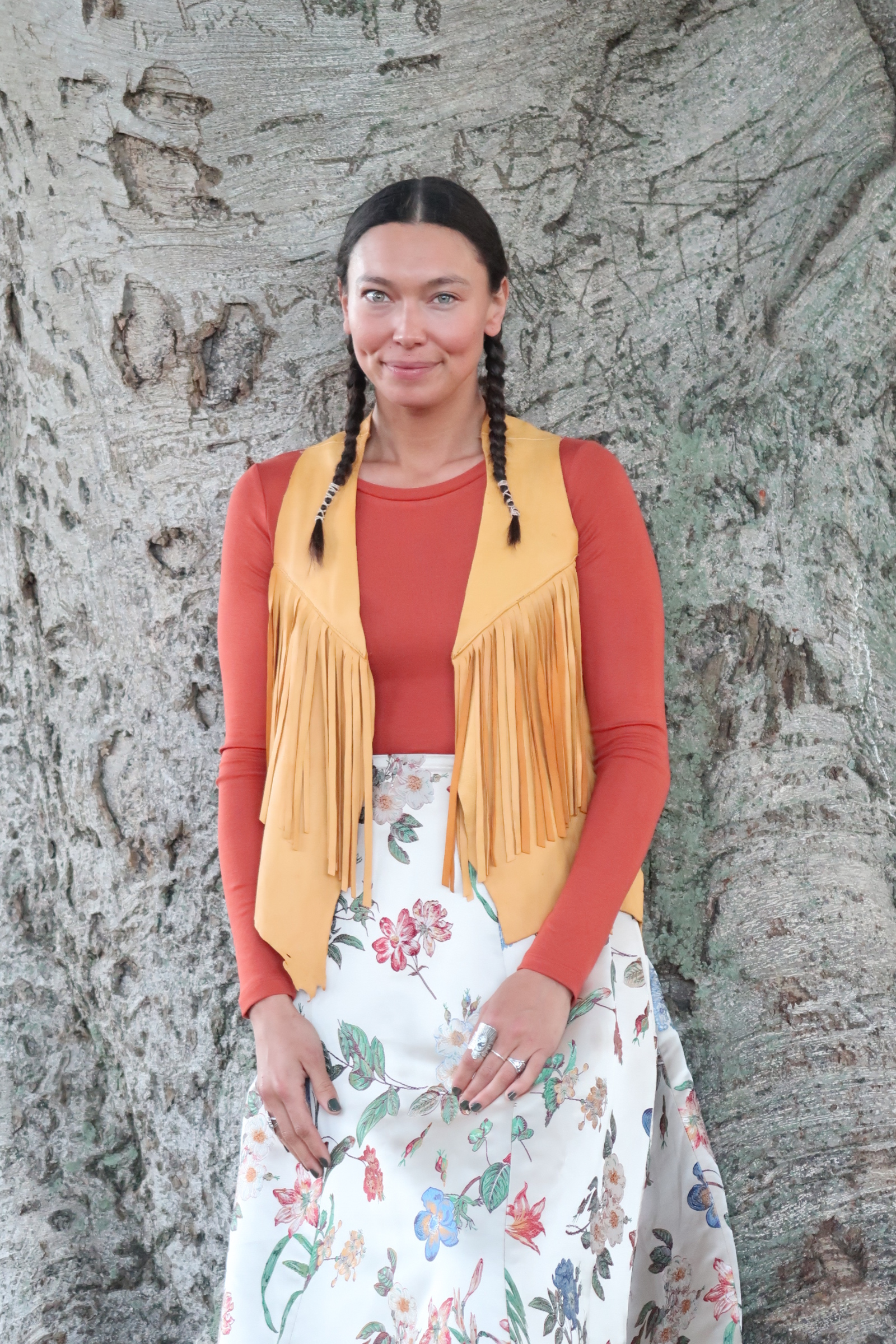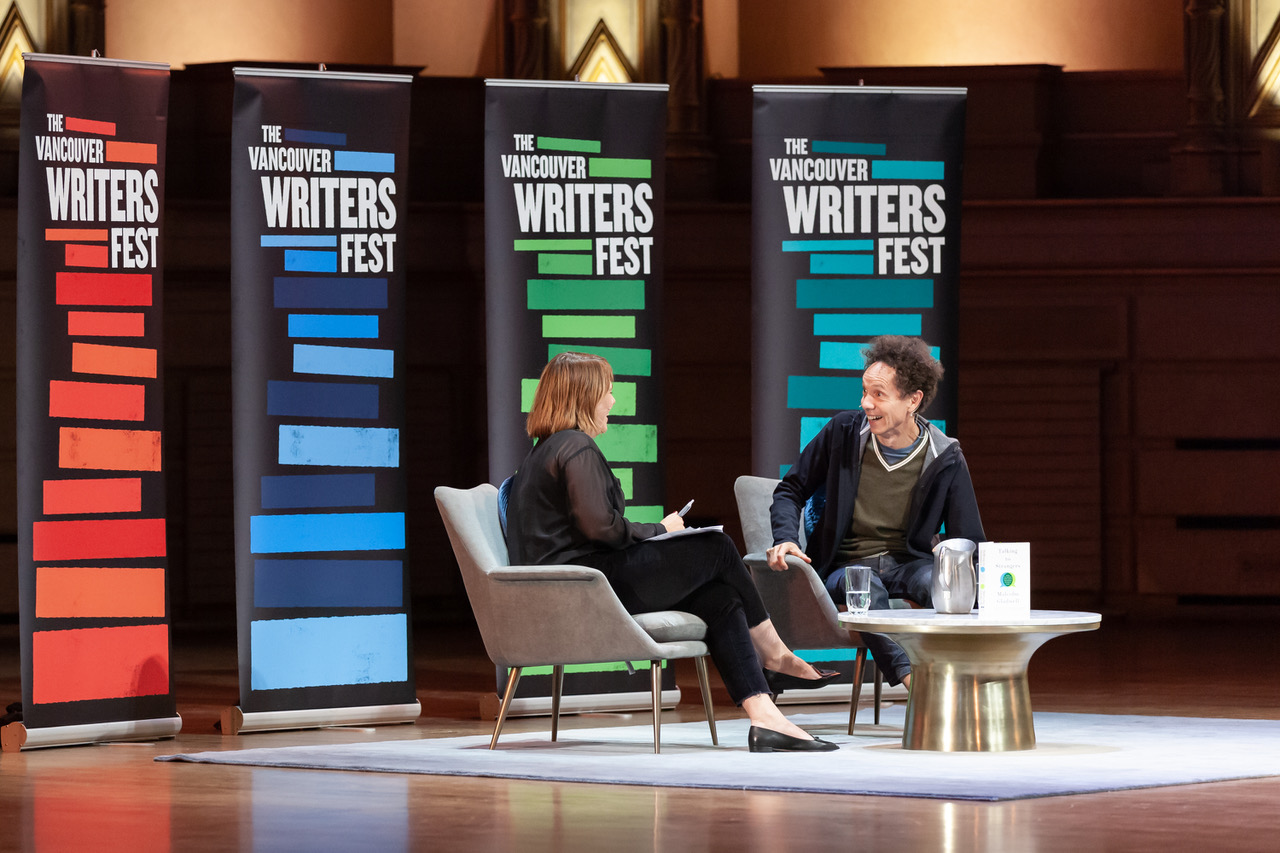Tanya Talaga Speaks with a Collective Voice
A generous soul.
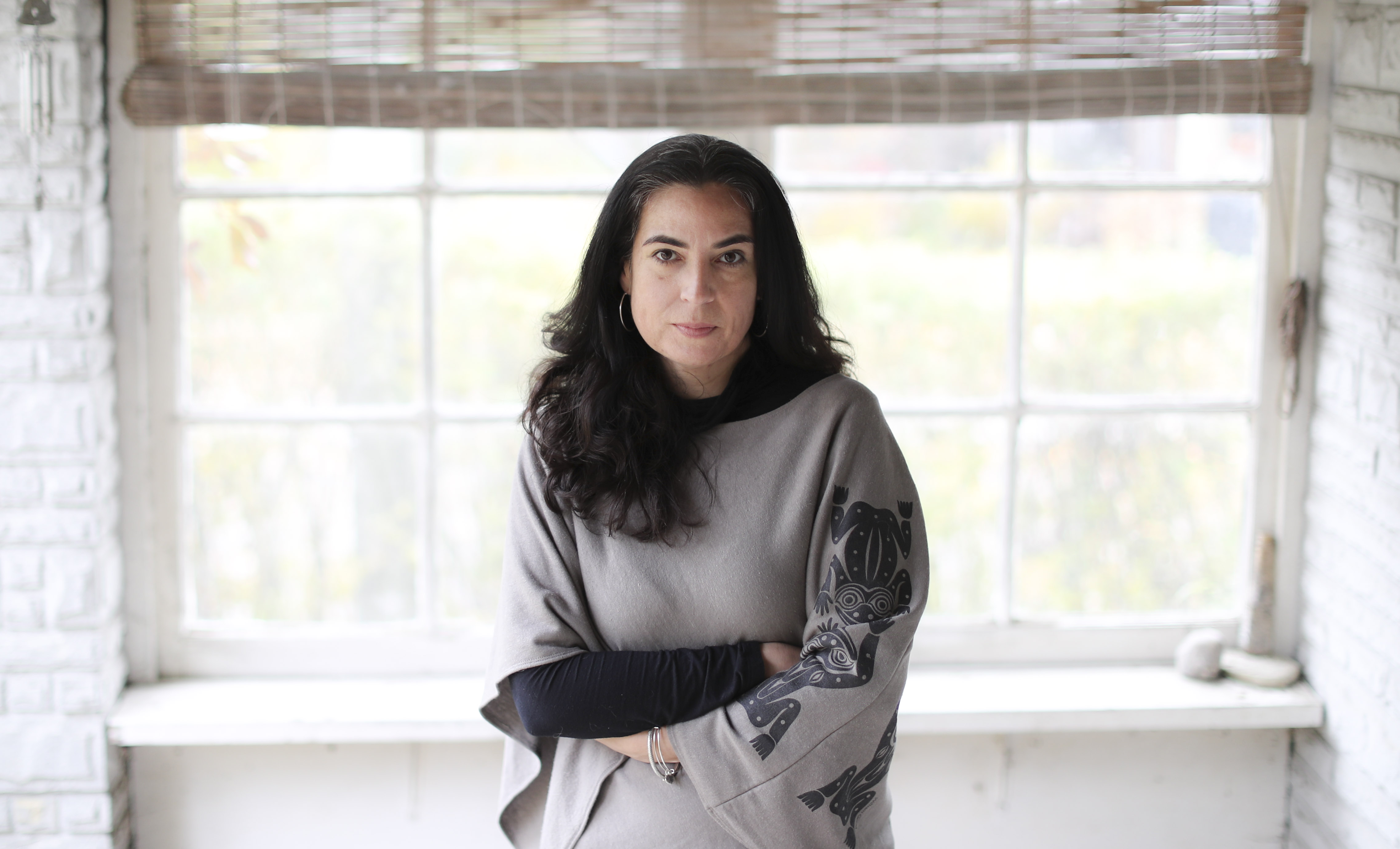
TORONTO, ON - November 8 Star writer and author of Seven Fallen Feathers Tanya Talaga is seen in her home in the east end of Toronto for a Q and A. November 8, 2018
Tanya Talaga is generous: with her time, with her words, and with her breakfast. “Seriously, please take them. I am so not a potato person,” she says, holding out her plate at Vancouver’s Dockside Restaurant on Granville Island. It’s a big morning for the Toronto-based Anishinaabe reporter and author—it’s the day of the federal election and she has a story to file for the Toronto Star on Jody Wilson-Raybould; it is also the first day of the Vancouver Writers Fest, for which she is guest curator this year. You’d never know it, though, as she eats unhurriedly and speaks softly.
It feels fitting to sit down with Talaga on Election Day. Her first book, Seven Fallen Feathers, originated as a piece of journalism investigating why Indigenous people in Thunder Bay weren’t voting in elections. Instead, she found the story of Jethro Anderson, Curran Strang, Paul Panacheese, Robyn Harper, Reggie Bushie, Kyle Morrisseau, and Jordan Wabasse—seven Indigenous students who were taken hundreds of kilometres from their families in rural communities to attend high school in Thunder Bay, where they went missing. They disappeared between 2000 and 2011, five of them found dead in the floodways that feed into Lake Superior and beneath the shadow of Mount McKay (Animikii-wajiw or Thunder Mountain), a spiritual centre for the Ojibwe of Fort William First Nation. When Talaga began reporting in Thunder Bay in 2011, searchers were still looking for Jordan. “When I was writing about it, I knew that it wouldn’t be daily news articles, it would be a book,” she recalls.
Every writer has a book buried inside them and as a young girl growing up in Toronto, reading Stephen King, Talaga knew she was going to write a book someday, she just didn’t know what kind. “It’s a book I wish I didn’t have to write,” she says. “When I was a girl thinking about writing, I never knew what those books would be. I thought they would be fiction because that’s what I was reading as a young person. But adult me finds the creative non-fiction voice incredible—the ability to reach so many people with truth. And that’s where I think my voice is best served right now.”
Seven Fallen Feathers is a collection of voices—voices of First Nations people from the North who have experienced great loss. “It’s the voices of the families, I hope,” says Talaga of the main purpose of the book, which was to show that the seven students were loved by their communities, families, and friends. “We’re honouring their lives and we haven’t forgotten them,” she asserts. Seven Fallen Feathers was a culmination of her work as an investigative reporter and set her on a path as a writer. She speaks considerately and deliberately about writing the stories: “It is an honour. It is one you can never forget, though. One that is always with you, that this is your path. This is what you are expected to do with what you’ve been given.”

The headline of Talaga’s first column for the Toronto Star from Thunder Bay published on Sunday, May 8, 2011. The beginning of what would become Seven Fallen Fathers.
As difficult as it can be to tell the stories she carries with her, Talaga says she is proud to write about the incredible ideas, power, and thoughtfulness of her people, especially knowing that those stories will affect policy change. “Being able to present that view of the world, that much-needed view of the country that we call Canada, that’s what brings me the most joy,” she says, her eyes full of conviction. She smiles and adds, “I am so grateful for the support and the love. The kindness and the trust that I have encountered time and time again from First Nations, Métis, and Inuit people. It’s amazing. I honestly couldn’t do this work without them, and I hope that it’s their voices that I’m putting forward.”
She says that when this type of work takes an emotional or spiritual toll, that’s when community is most important. “There’s such a feeling amongst us of support and love and a feeling that we’re all in this together and that we’re all moving this train forward. We can have differences of opinion; we can duke it out over who’s voting for whom or what this viewpoint is or what this viewpoint isn’t, but at the end of the day, there’s ultimate respect. It’s like a big hug.”
When writers send their books out into the world, there is always a hope attached. For Talaga, her hope is that people read the stories, listen to the collective voices, and ask themselves, “What can I do?”
Indigenous writers see the world differently, Talaga explains. While the acceptance of that view point is changing and opening up a little bit now, it hasn’t been easy and Indigenous people spend a lot of their time educating people. “That’s not necessarily something everyone signed up for,” she says. She has taken on the responsibility of educating people too with her book All Our Relations, which focuses on youth suicide rates in Indigenous communities globally. The book arose from research she conducted as part of the Atkinson Fellowship in Public Policy and the 2018 Massey Lectures.
When writers send their books out into the world, there is always a hope attached. For Talaga, her hope is that people read the stories, listen to the collective voices, and ask themselves, “What can I do?” “We can change people’s minds, but it takes all of us,” she says. Still, she is continually amazed when people read her work. She admits, “When you’re writing books, you’re so much in your mind. It’s such a part of you to leave on the page—it’s your deepest, darkest thoughts. It’s what you truly think. You never really think that people are going to crawl into that space with you.” But they do.
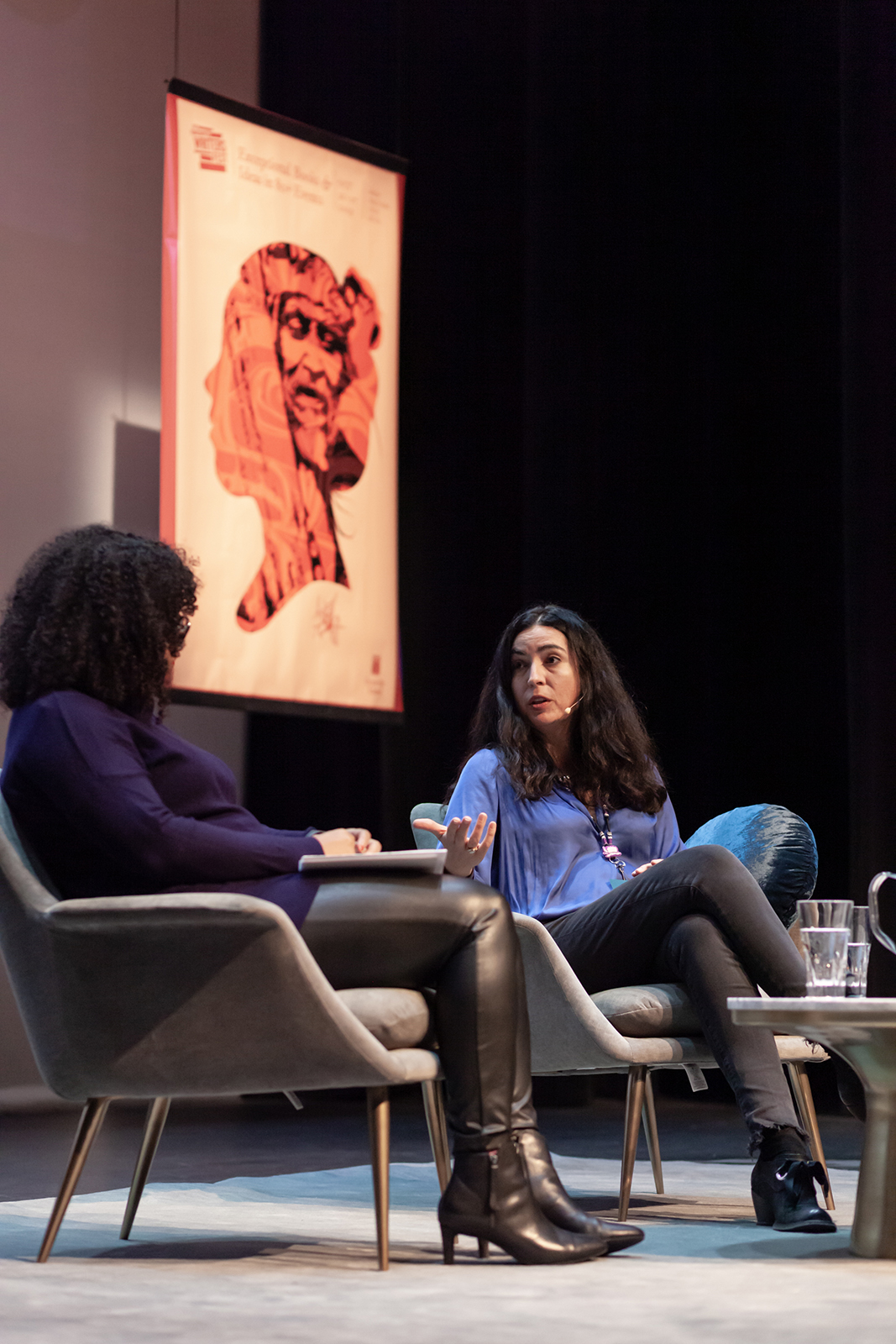
Talaga in conversation with Jael Richardson at the Vancouver Writers Fest. Photo by Dillon Byrne.
Students across Canada are reading Talaga’s books at colleges and universities (which she thinks is “the coolest thing in the world”), and this January All Our Relations will be released in Australia, New Zealand, and the U.K. “I hope the book will be received outside of Turtle Island, because I think that it can apply to many others,” she says of Indigenous communities outside Canada. “It also applies to who we are as humans and where we are when it comes to equity and basic human rights.”
Talaga’s books were a natural progression of her journalism career but according to her, she owes a lot of her perspective to her children. Before her son and daughter were born, her aspirations as a writer were more individualistic. “Going through the stages of motherhood, my focus went inward, to my communities,” she confides. “It’s not about you, right? None of this, really, in my view, is about you.” Her children inspire her to try to leave the world a better place. “That’s the Anishinaabe viewpoint as well,” she says. “We always think about seven generations and what we’re going to leave behind for our children.”
She isn’t alone in this pursuit. As she stands to leave, she is excited about her “mini vacation” at the Writers Fest, where talented Indigenous writers from across the country have come together to share ideas and discuss their craft, which is slowly, one book at a time, changing the way people think about Canadian literature. It’s a gathering that Talaga calls “a lovely gift”.
_________
Never miss a story. Sign up for NUVO’s weekly newsletter, here.

